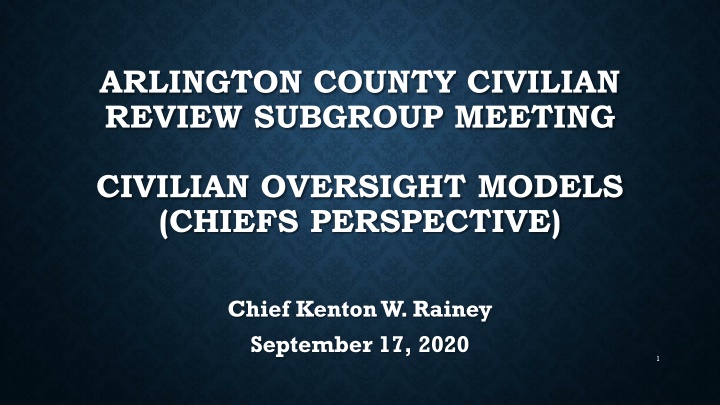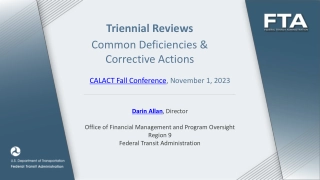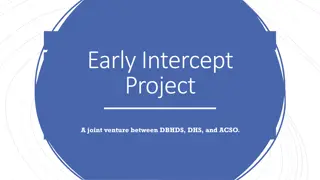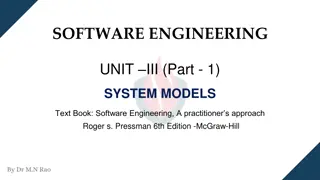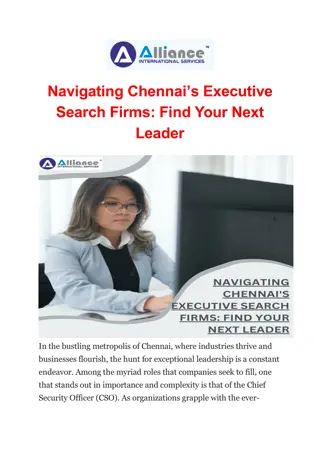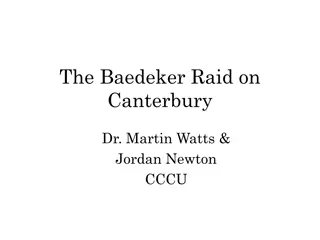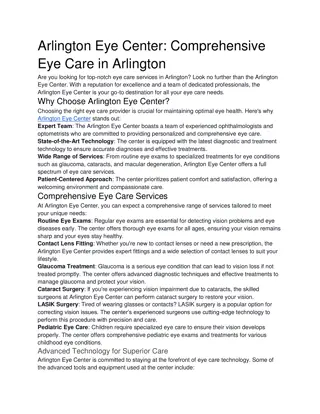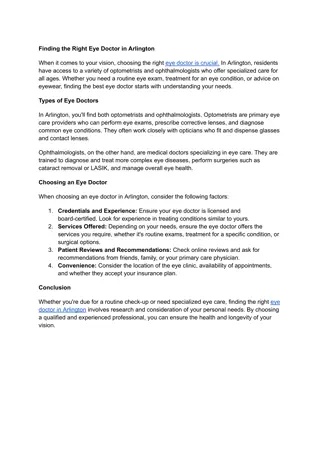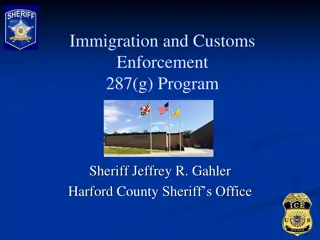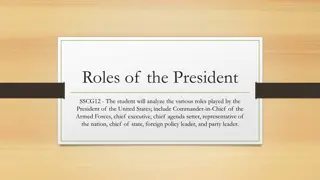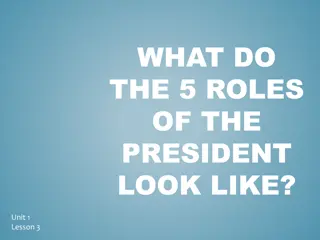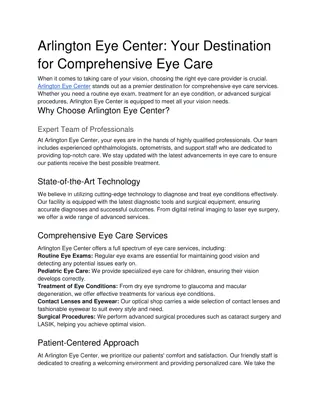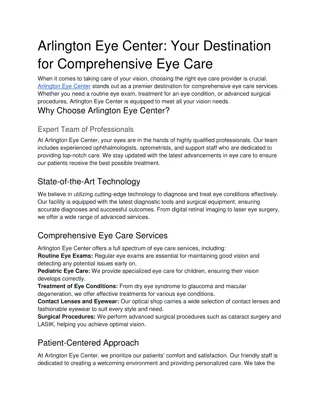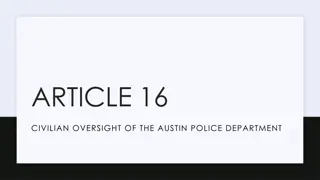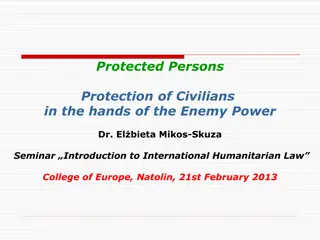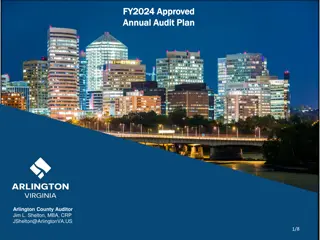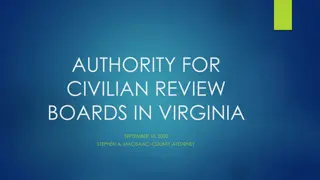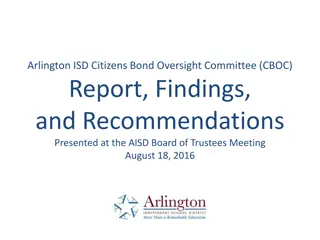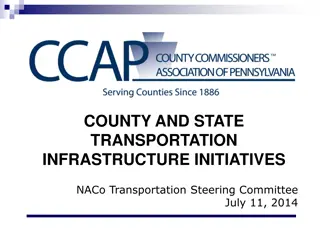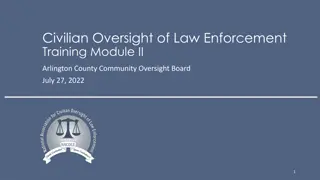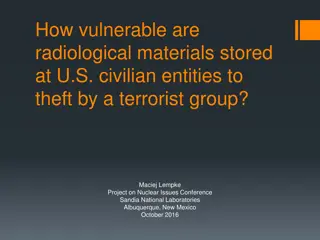Arlington County Civilian Oversight Models – Chief's Perspective
In this presentation, Chief Kenton W. Rainey shares insights on civilian oversight models in law enforcement, emphasizing the importance of building trust, policy development, community policing, and officer wellness. The discussion includes examples from various police departments and the President's Task Force on 21st Century Policing.
Download Presentation

Please find below an Image/Link to download the presentation.
The content on the website is provided AS IS for your information and personal use only. It may not be sold, licensed, or shared on other websites without obtaining consent from the author.If you encounter any issues during the download, it is possible that the publisher has removed the file from their server.
You are allowed to download the files provided on this website for personal or commercial use, subject to the condition that they are used lawfully. All files are the property of their respective owners.
The content on the website is provided AS IS for your information and personal use only. It may not be sold, licensed, or shared on other websites without obtaining consent from the author.
E N D
Presentation Transcript
ARLINGTON COUNTY CIVILIAN REVIEW SUBGROUP MEETING CIVILIAN OVERSIGHT MODELS (CHIEFS PERSPECTIVE) Chief Kenton W. Rainey September 17, 2020 1
CIVILIAN OVERSIGHT MODELS (CHIEF S PERSPECTIVE) 40 years of law enforcement experience 7 different agencies and 4 different states, 3 as COP Approximately 1000 personnel investigations Graduate of SMIP Graduate UCLA Anderson Graduate School Public Safety Academy NOBLE Fellow Twice selected as Officer of the Year 2
CIVILIAN OVERSIGHT MODELS (CHIEF S PERSPECTIVE) San Francisco CA Bay Area Transit Police Dept Office Independent Police Auditor & Citizens Review Board Dayton Ohio Police Dept Citizens Appeals Board (CAB) Fairfield CA Police Dept Citizens Complaint Audit Committee University of Chicago Police Dept Independent Review Committee & Civilian Investigator 3
CIVILIAN OVERSIGHT MODELS (CHIEF S PERSPECTIVE) President s Task Force on 21st Century Policing When any part of the American family does not feel like it is being treated fairly, that s a problem for all of us. President Barack Obama Trust between law enforcement agencies and the people they protect and serve is essential in a democracy. It is key to the stability of our communities, the integrity of our criminal justice system, and the safe and effective delivery of policing services. 4
CIVILIAN OVERSIGHT MODELS (CHIEF S PERSPECTIVE) Pillar 1 Building Trust & Legitimacy Pillar 2 Policy & Oversight Pillar 3 Technology & Social Media Pillar 4 Community Policing & Crime Reduction Pillar 5 Training & Education Pillar 6 Officer Wellness & Safety 5
CIVILIAN OVERSIGHT MODELS (CHIEF S PERSPECTIVE) PILLAR 2 . POLICY & OVERSIGHT 2.8 RECOMMENDATION: Some form of civilian oversight of law enforcement is important in order to strengthen trust with the community. Every community should define the appropriate form and structure of civilian oversight to meet the needs of that community. 6
CIVILIAN OVERSIGHT MODELS (CHIEF S PERSPECTIVE) Chief of Police Officers Activists Politicians Costs 7
CIVILIAN OVERSIGHT MODELS (CHIEF S PERSPECTIVE) Police Departments are Para-Military Organization Juries/Civil and Criminal Proceedings System of Accountability Builds Trust & Legitimacy Transparency & Innovation 8
CIVILIAN OVERSIGHT MODELS (CHIEF S PERSPECTIVE) Community Policing is a philosophy, management style, and organizational design that promotes proactive problem-solving and police-community partnerships to address the causes of crime and fear as well as other community issues. Community Partnership is a flexible term referring to any given combination of neighborhood residents, schools, churches, businesses, community-based organizations and government agencies who are working cooperatively with the police to resolve identified problems that impact or interest them. 9
CIVILIAN OVERSIGHT MODELS (CHIEF S PERSPECTIVE) Department Policies & Procedures State Statues Peace Officer Bill of Rights Criminal vs Administrative Investigations Local Ordinances Confidentiality Collective Bargaining Agreements FOIA 10
CIVILIAN OVERSIGHT MODELS (CHIEF S PERSPECTIVE) Kenton W. Rainey University of Chicago 850 E. 61st Street Chicago, IL 60637 O 773 834 1974 C 773 251 9033 krainey@uchicago.edu 11
